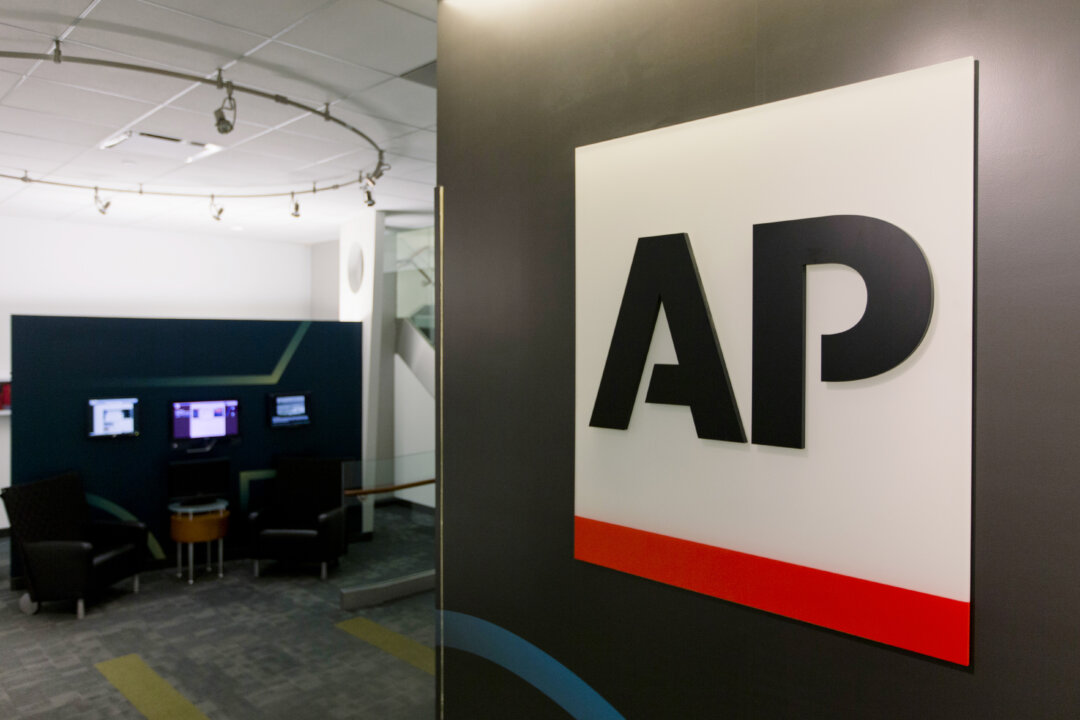The outlet had its access limited after it refused to use the name ‘Gulf of America’ after Trump’s order changing the name of the ‘Gulf of Mexico.’
WASHINGTON—A federal judge on Feb. 24 refused the Associated Press’s (AP) emergency bid to force the White House to restore its press access to the Oval Office and Air Force One.
In denying the application, U.S. District Judge Trevor McFadden agreed with the government that AP was asking for special access to the White House, and that an emergency block was not necessary because the news outlet was not being harmed irreparably.
The AP sued last week, alleging that the administration violated the First Amendment by retaliating against the outlet over its decision not to use “Gulf of America” instead of “Gulf of Mexico” after Trump’s executive order changing the name.
The outlet said it would continue using “Gulf of Mexico” and that it would mention the name change because its style book demands it “must ensure that place names and geography are easily recognizable to all audiences.” AP’s stylebook is used by most media organizations as an initial reference point.
According to the plaintiffs, White House Press Secretary Karoline Leavitt requested a meeting with AP’s chief White House correspondent, Zeke Miller, on Feb. 11, where she informed him that the agency would be banned from the Oval Office press pool until it began using the term “Gulf of America” in its reporting.
The AP also alleged that this is a violation of its Fifth Amendment right to due process.
The suit names Leavitt, deputy chief of staff Taylor Budowich, and chief of staff Susan Wiles. The White House urged McFadden to reject AP’s request for a restraining order, arguing that the AP continues to enjoy general press access, like any other media outlet, and has continued to report on Trump’s administration.
The AP has no special right to “unfettered access to the president’s exclusive gatherings, even when other news agencies do not have that right,” the government said.
“Most journalists have no routine access to the Oval Office, Air Force One, or the president’s home at Mar-a-Lago.”
It also said the president “need not engage with, or provide special access to, journalists,” citing Sherrill v. Knight, which said it would “be unreasonable to suggest that because the president allows interviews with some bona fide journalists, he must give this opportunity to all.”
The government also cited Baltimore Sun Co. v. Ehrlich, which stated that “reporters are sometimes denied access because an official believes them to be unobjective,” and found that this was not a violation of the Constitution.
McFadden agreed with the government, citing both of these cases in his ruling.
Brian Hudak, an attorney for the government, drew a laugh from the court when he asked if President Joe Biden should have been forced to give a sit-down interview with Alex Jones and Infowars.
McFadden said he was “not inclined to act precipitously” in imposing an order on the executive branch, especially since this would entail forcing the president to give intimate access to a media organization that he had banned.
He also pointed out that AP has continued reporting on the White House through readily accessible information from other members of the press pool, and said that since they waited over a week to file suit, it showed that the case was not particularly urgent.
However, while he did not impose an emergency block, he warned that the AP may still have a case, since it was clear that the government had kicked them out of the press pool because of their refusal to use language preferred by the Trump administration.
A further hearing is set for March 20.

